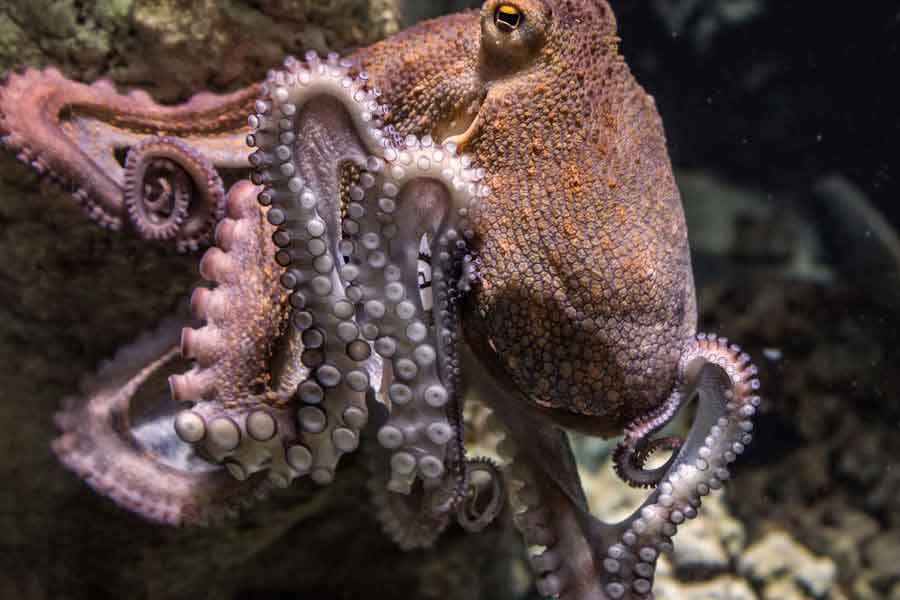
At the moment of birth, octopus hatchlings measure only 3 mm, and their arms have only three suckers. With the help of a microscope and thanks to their transparency, one can observe the coordinated movement of their three hearts pumping blood through their gelatinous bodies.
The mother has diligently cared for the egg clutch. Enclosed in a small cave with clusters of eggs hanging from the ceiling, she has dedicated the last three months of her life to cleaning and keeping them well-ventilated. The female never leaves the clutch, not even to search for food. She dies of exhaustion as the eggs hatch. Despite her efforts, only ten percent of the 100,000 eggs that made up the clutch will hatch. At the moment of hatching, a cloud of 10,000 tiny transparent octopuses surrounds the mother’s body.
Scientists agree that the first food for these hatchlings is typically fish larvae. But is it a coincidence that the mother dies precisely at the moment of hatching? Not a minute before or after? Did her life, depleted by effort and lack of food, find its end just at that exact moment for no reason? Will her protein-rich body be abandoned to predators while a swarm of offspring desperately searches for food?
Perhaps the mother’s skin is too tough for the small octopuses, or maybe the mother foresaw these events. Octopuses have salivary glands that produce an enzyme capable of diffusing a venom they use to feed on crabs. Once injected, this venom participates in the predigestion of the crab’s body, in other words, it turns the crab’s flesh into a soft paste.
So, could the female have self-injected this venom? If she had, her body would have been predigested, allowing the hatchlings to access a nearby protein source without any effort. Wouldn’t that explain the punctuality of her death coinciding with the moment of hatching? The question at hand is whether the female octopus could have self-eliminated at the moment of the offspring’s birth solely to serve as their food. Wasn’t she self-eliminating by not feeding herself until she died of exhaustion?
Perhaps due to the small cave where this occurs, this point has not been observed with sufficient detail. Maybe the presence of an observer frightens the tiny octopuses, causing them to flee. But wouldn’t it be logical for the lifeless body of the mother to be utilized as the offspring’s first meal? It is hard for me to believe that nature would waste such valuable protein when there is so much needy offspring nearby.
Perhaps these lines are nothing more than science fiction, mere random conjectures. Maybe the female octopus never had the intellectual capacity to realize this event. Perhaps we will never know, maybe we haven’t investigated enough. Perhaps… Does the search for answers always begin with a «maybe»?
«You cannot protect what you do not love, and you cannot love what you do not know.»

